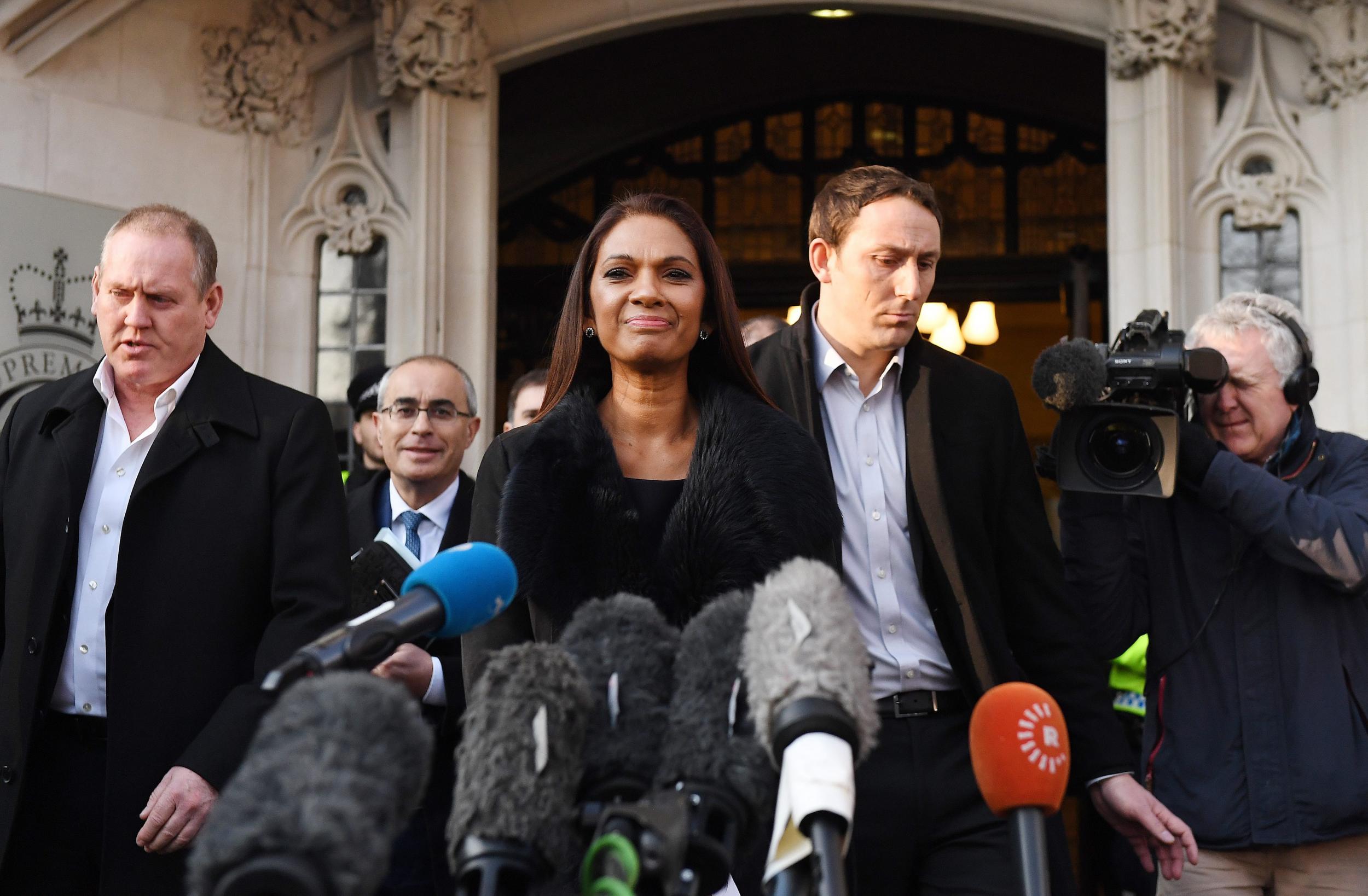Brexit Supreme Court ruling 'a matter of life or death' for five million people
Victory for campaigners could help secure rights for EU and UK expats alike

Your support helps us to tell the story
From reproductive rights to climate change to Big Tech, The Independent is on the ground when the story is developing. Whether it's investigating the financials of Elon Musk's pro-Trump PAC or producing our latest documentary, 'The A Word', which shines a light on the American women fighting for reproductive rights, we know how important it is to parse out the facts from the messaging.
At such a critical moment in US history, we need reporters on the ground. Your donation allows us to keep sending journalists to speak to both sides of the story.
The Independent is trusted by Americans across the entire political spectrum. And unlike many other quality news outlets, we choose not to lock Americans out of our reporting and analysis with paywalls. We believe quality journalism should be available to everyone, paid for by those who can afford it.
Your support makes all the difference.The Supreme Court ruling on Brexit handed down on Tuesday morning could prove to be "a matter of life or death" for five million people across Europe, according to a representative for expatriates.
John Shaw, from the campaign group Fair Deal For Expats, said he was "delighted and relieved" by the judgement, which blocks Theresa May from triggering the process of leaving the EU without first getting Parliament's approval.
Mr Shaw said the Government had been treating the two million British expats in Europe, as well as the three million EU citizens in the UK, as "bargaining chips", and welcomed giving MPs a role over the triggering of Article 50.
Campaigners for the rights of expats, the majority of whom were barred from voting in the referendum, have been involved in the Brexit court case from its onset.
Many British expats living in Europe depend on Britain's membership of the EU for basic needs such as healthcare, the right to work and their children's education.
"Everything people in Britain take for granted in their daily lives, rests for us on our being EU citizens," Mr Shaw said.
"Proper parliamentary scrutiny now offers the best chance for our circumstances to be considered in the lead-up to the Brexit negotiations."
Mr Shaw, who lives in Lauzon in France, said he was suffering from cancer and cited a friend who had lived an extra "four or five years" as a result of French healthcare, paid for under EU rules.
"So it is a matter of life or death," he said. "Together with three million nationals of other European countries who live here, we are the people who will be most profoundly affected by all of this.
"This is the human side of Brexit. We would urge the Government not to use us as bargaining chips. We will be calling on the Government and the European Commission to ensure hard guarantees are put in place about what the future holds for such a large number of ordinary people. We ask that governments across the EU do the same."
Handing down the Supreme Court judges' ruling, which went against the Government by a majority of eight to three, Lord Neuberger said the process of Brexit would change British law and take away legal rights currently enjoyed by British citizens.
"The UK’s constitutional arrangements require such changes be clearly authorised by Parliament," he said.
Lord Neuberger said the judgement was not about the referendum result or a comment on the merits of leaving or staying in the EU.
"The referendum is of great political significance, but the Act of Parliament authorising it did not say what would happen afterwards," Lord Neuberger said, meaning any action taken now must be in keeping with the UK’s constitution.
Speaking outside the court, the Attorney General Jeremy Wright said the Government was "disappointed in the outcome".
He said that Britons were "fortunate enough to live in a country where everyone... even the Government... is subject to the rule of law", adding that the Government would comply with today's judgement.
The verdict will come as a considerable blow to Ms May, amid growing criticism that her plans for EU withdrawal are chaotic.
The Prime Minister will now have to give Parliament the chance to vote on whether to trigger Article 50, the mechanism by which EU withdrawal can formally begin.
It is unclear what will happen legally if MPs vote against the bill which Ms May is now required to bring forward, as much of the constitutional law related to Brexit remains as yet untested, although Jeremy Corbyn has "asked" his MPs not to vote to obstruct it.
The judges' ruling is a victory for Gina Miller, a philanthropist and banker, who brought the case against the government. She was also backed by a crowd-funded group called The Peoples' Challenge, who described themselves as a group of "concerned EU citizens".
Join our commenting forum
Join thought-provoking conversations, follow other Independent readers and see their replies
Comments